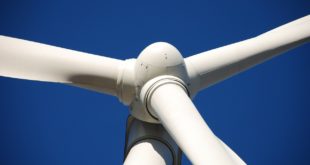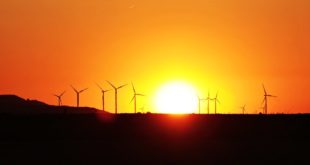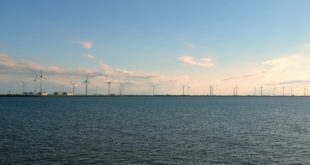In March 2005, the University of Minnesota-Morris became the first public American university to install a large-scale wind turbine to help meet the schools electrical needs. Since it was installed, the generator has supplied some 60 percent of the universitys power. The rest of the schools power needs are purchased from Otter Tail Power Companys Tailwinds Program.
Those figures mean that whether the electricity is generated on site or purchased off the grid, 100 percent of UMMs electrical power needs are supplied by wind power, but the schools commitment to energy independence doesnt stop there. The universitys students have helped the school reach toward its energy goals by reducing electricity, water, and waste needs. The faculty has also gotten into the spirit, as well, placing considerable emphasis on green power and conservation in their classrooms.
The UMM 1.65 megawatt Vestas generator is an impressive sight, with 135-foot blades and a 230-foot tower, making the massive machine stand some 365 feet tall, but its impact on the community and the state of Minnesota goes far greater than that. The generator has become a major tourist and field trip destination in central Minnesota, and has helped raise the awareness of thousands of people, especially school children, since its construction in 2005.
The generator is a model of efficiency, and only takes a breeze of 7-9 mph to begin generating electricity. It takes a 26 mph wind to generate the units full 1.65 megawatts. Theres a dedicated power line to the UMM campus, and if the University needs more power, the local utility lines provide it automatically, so no one on campus knows if the power is coming from the generator or the grid at any given time. On the other side of the coin, whenever UMMs power needs are less than what the generator is producing, the excess electric energy is directed back into the local utility grid.
All this is impressive, but the university has even more extensive plans for increasing its energy independence. There are plans for the construction of a biomass gasification plant at UMM in 2006, which will be capable of meeting 80 percent of the campus heating and cooling needs. The plant will use stover (stalk residue) from cornfields in the area, as well as waste wood, other crop residues and various organic stocks as its fuel base.
The United States as a whole is second only to Germany in total production of wind-generated electricity, with California, Texas, and Minnesota leading the way.
Copyright © Jeanette J. Fisher. Publish with live links only.
Jeanette Joy Fisher
Jeanette Fisher, author of interior design and real estate books helps home owners makeover their homes with ‘green design.’ For more home environmental issue articles, visit Environmental Psychology
Wind Power
 Alternative Energy HQ solar power for homes, wind energy, and bio fuel issues
Alternative Energy HQ solar power for homes, wind energy, and bio fuel issues






